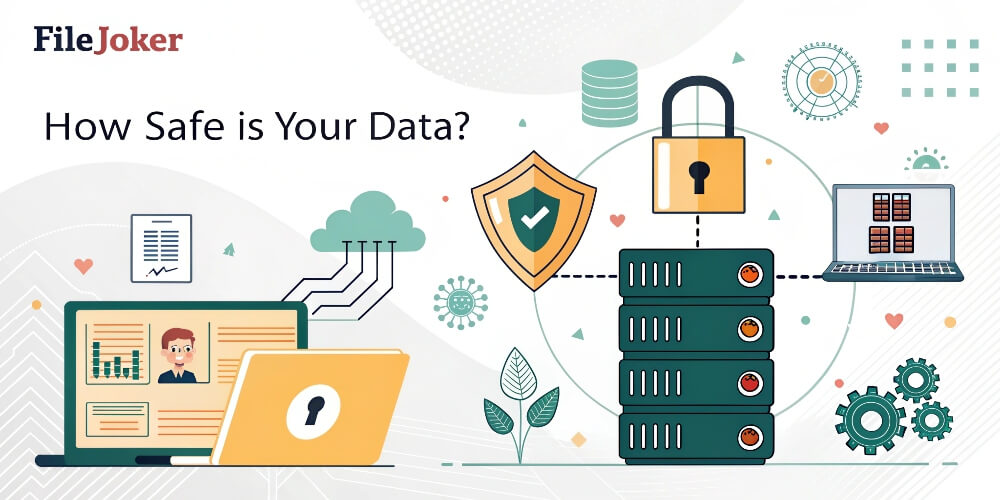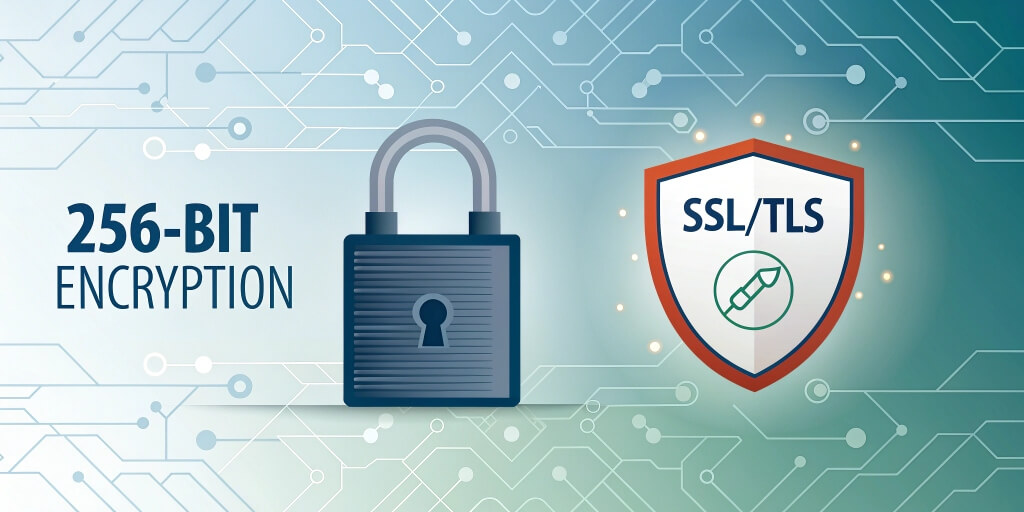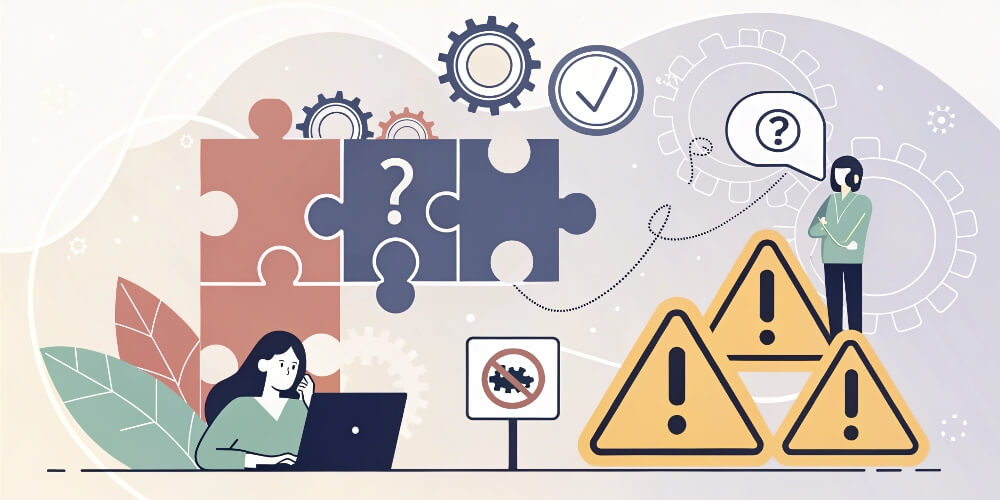Filejoker Security Features Explored: How Safe is Your Data?
In today’s digital landscape, where data breaches and privacy concerns are increasingly common, the security of cloud storage services is paramount. Filejoker, a platform for file hosting and sharing, positions itself as a secure option, highlighting features like encryption and privacy protection. But how robust are these measures, and how safe is your data when using Filejoker? This article delves into Filejoker’s stated security features, examines its privacy policy, considers potential user-reported issues, and offers insights to help you assess the safety of entrusting your files to this service.
Filejoker’s Security Claims: Encryption and Protection

Filejoker actively promotes its security measures across its various informational pages. The core claims revolve around encryption and secure infrastructure:
Data and Traffic Encryption
Multiple sources associated with Filejoker emphasize the use of encryption:
- General Encryption: Filejoker states the platform prides itself on a “high level of security and privacy” and mentions “encrypted traffic and data” even for registered free users. The official Privacy Policy asserts that Filejoker “employs state of the art encryption technology” and that “All traffic, both incoming and outgoing is 100% encrypted using the latest technological solutions.”
- Specific Standards: The FAQ section on Filejoker goes further, claiming Filejoker utilizes “state of the art 256-bit data and traffic encryption with RSA“. This specific mention of 256-bit encryption (a strong industry standard often used in AES) and RSA (commonly used for key exchange) suggests a robust cryptographic approach.
- Upload/Access Encryption: Filejoker specifically notes that Filejoker “encrypts your data when you upload it or access it,” making it difficult for unauthorized parties to read.
- HTTPS/SSL: The FAQ also mentions “Top level SSL technology protects whatever actions you do on site”. This refers to the standard secure protocol (now technically TLS) used to encrypt communication between your browser and the Filejoker website, protecting login credentials and other interactions.

Secure Infrastructure and Practices
Beyond direct file encryption, Filejoker implies broader security practices:
- Payment Security: The platform assures users that payment processes are secure, adhering to strict standards imposed by VISA/MasterCard and other providers. Their privacy policy explicitly states that payment information is not stored on their servers but handled by encrypted payment providers.
- Physical Security (Implied): While not explicitly detailed on their main site, general articles discussing Filejoker’s security mention standard cloud provider practices like firewall protection and physical security for data centers, although these are generic points about cloud storage rather than specific Filejoker guarantees.
- Anonymity (Premium VIP): The Premium VIP tier specifically lists “Anonymous Downloads” and “Fully Encrypted Download Traffic” as benefits, suggesting an extra layer of privacy for top-tier users.
Analyzing the Privacy Policy
Filejoker’s Privacy Policy provides further context on how user data is handled:
- Information Collected: They collect personal information provided during registration (name, email, potentially location/address if applicable) and usage data (IP addresses for analysis, trends, administration).
- Use of Information: Email addresses are used for service-related communication. They state they will not rent, sell, or share email or information with third parties, except for companies contracted to facilitate their services (e.g., data storage, maintenance). Uploaded content itself is explicitly not considered personally identifiable information subject to the policy.
- Disclosure to Authorities: Crucially, the policy states Filejoker cooperates with governments and law enforcement and will disclose information if deemed necessary in response to legal processes (subpoenas, etc.) or to protect rights and safety or prevent illegal activity. This is a standard clause but highlights that Filejoker is not a zero-knowledge or completely anonymous platform in the face of legal requirements.
- User Responsibility: The policy emphasizes the user’s responsibility to keep their password confidential.
Potential Concerns and User-Reported Issues
While Filejoker promotes strong security, user reviews and forum discussions sometimes highlight potential issues or concerns, although these don’t always directly relate to data breaches:
- Login and Access Problems: Several users across platforms like Sitejabber and JustAnswer have reported difficulties logging in, often related to forgotten passwords and unresponsive password reset mechanisms. While frustrating, this points more towards account management or support issues rather than fundamental security flaws, though inability to access one’s account is a practical security concern.
- Payment Processing: Some Trustpilot reviews mention suspicious or failed payment processes, sometimes involving redirects to third-party processors. While Filejoker claims secure payments, issues in this area can erode user trust.
- Download Interruptions/Plugin Issues: Forum posts on JDownloader and GitHub mention problems with downloads failing, plugin errors, or issues with specific download managers. These are often technical glitches but can impact the reliability perceived by users.
- Transparency: One Trustpilot review criticized a lack of transparency regarding payment options and slow support.
It’s important to note that many users also report positive experiences, describing the service as reliable. Scamadviser gives Filejoker a relatively high trust score, suggesting it’s likely legitimate. However, the reported issues indicate potential inconsistencies in user experience and support.

How Safe is Your Data, Realistically?
Based on the available information, here’s an assessment:
- Encryption: Filejoker claims to use strong, industry-standard encryption (256-bit, RSA, SSL/TLS) for data in transit and potentially at rest. This is a positive security measure. If implemented correctly, it significantly protects data from eavesdropping and unauthorized access during transfers.
- Privacy: Filejoker collects standard user information and IP addresses. While they state they don’t sell this data, they will comply with legal requests from authorities. Uploaded content is not treated as private information under their policy. Users seeking absolute privacy or zero-knowledge storage should be aware of these points.
- Account Security: The primary responsibility for account security (strong password, not sharing it) lies with the user. Issues reported with password resets suggest potential weaknesses in account recovery processes, which could indirectly impact security if users lose access.
- Operational Security: While claiming secure infrastructure, the lack of specific details (e.g., data center certifications, third-party audits) makes it hard to independently verify the robustness of their operational security beyond their claims.
- Third-Party Risks: The use of third-party payment processors and potentially other service facilitators introduces dependencies and potential risks associated with those third parties’ security practices.
Recommendations for Users
- Use Strong, Unique Passwords: This is the most critical step for protecting your account.
- Be Cautious with Sensitive Data: Given the standard privacy policy regarding law enforcement and the fact that uploaded content isn’t covered, avoid storing highly sensitive or illegal material on Filejoker if you require absolute confidentiality.
- Consider Client-Side Encryption: For maximum security, encrypt sensitive files before uploading them to Filejoker (or any cloud service) using tools like VeraCrypt or Cryptomator. This ensures only you hold the decryption key.
- Enable Two-Factor Authentication (If Available): Check your Filejoker account settings to see if 2FA is offered. If so, enable it for an extra layer of login security.
- Keep Software Updated: Ensure your browser and any download managers used are up-to-date to protect against vulnerabilities.
Conclusion
Filejoker appears to implement standard security measures, including strong encryption for data transfers (SSL/TLS) and claims of 256-bit encryption for data itself. Their privacy policy is relatively typical, outlining data collection practices and compliance with legal obligations. For general file storage and sharing, particularly when combined with user diligence (strong passwords), Filejoker likely offers a reasonable level of security against common threats like casual hacking or eavesdropping during transit. However, users seeking the highest levels of privacy, verified operational security through audits, or zero-knowledge guarantees should be cautious. The reported issues with account access and payments, while not direct data breaches, also warrant consideration regarding overall service reliability. As with any cloud service, understanding the security features, acknowledging the inherent risks, and taking personal precautions like using strong passwords and considering client-side encryption for sensitive files are essential steps to ensure your data remains as safe as possible.
307